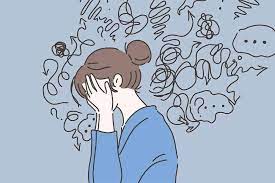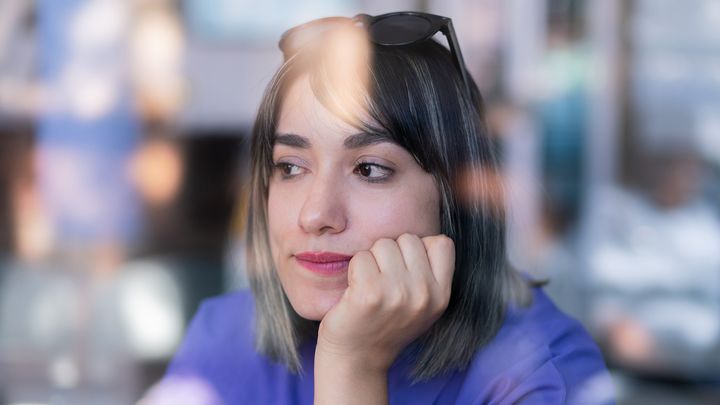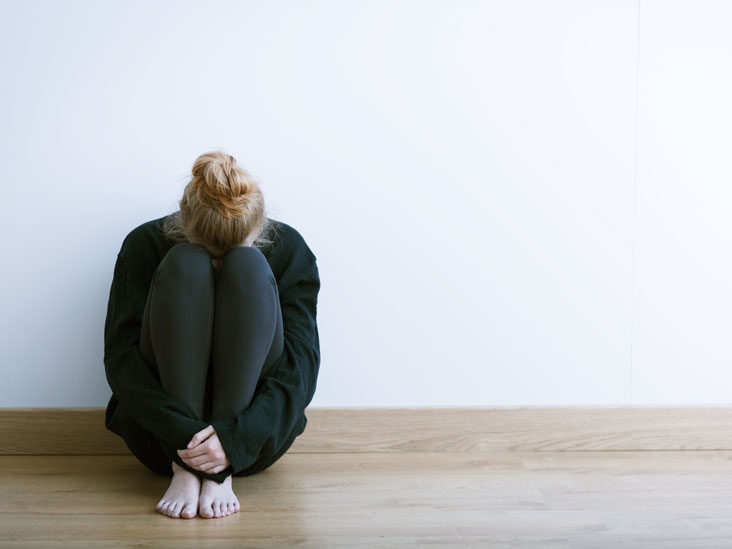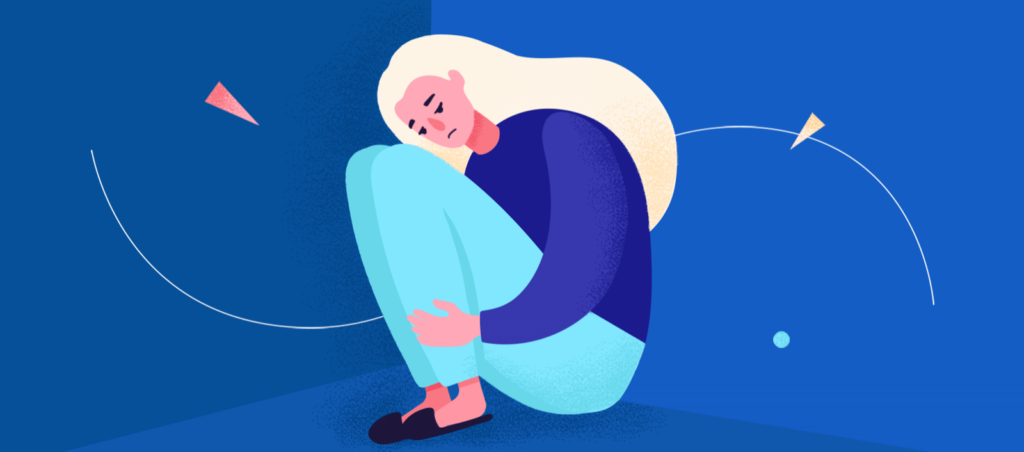Anxiety is a mental health condition that affects millions of people in the United States. It can be caused by many factors, including stress, genetics, and traumatic life events. But sometimes people experience anxiety for no reason at all. If you are one of those people, don’t worry – you’re not alone! In this blog post, we will discuss some strategies that you can use to cope with your anxiety.
Contents
- 1 What Does ” Anxiety For No Reason” Feeling Mean?
- 2 Reasons Why You Are Feeling Anxiety For No Reason
- 3 What To Do When You Are Feeling Anxiety For No Reason?
- 3.1 1. Relaxation Techniques
- 3.2 2. Avoid Caffeine
- 3.3 3. Get Enough Sleep
- 3.4 4. Eat a Healthy Diet
- 3.5 5. Get Some Exercise
- 3.6 6. Talk to Someone
- 3.7 7. Try Medication
- 3.8 8. Try Herbal Remedies
- 3.9 9. Limit your Alcohol Consumption
- 3.10 10. Avoid Drugs
- 3.11 11. Manage Stress
- 3.12 12. Seek Professional Help
- 4 Conclusion
What Does ” Anxiety For No Reason” Feeling Mean?

Anxiety for no reason often means that you are not currently in danger, but your body is telling you that you are. This can be confusing and frustrating, especially if you don’t know why you’re feeling this way.
There are many possible causes of anxiety for no reason. It could be due to a chemical imbalance in the brain, past trauma, or stress from current life circumstances. If you’re struggling with anxiety for no reason, there are some things you can do to ease your symptoms.
Sometimes there may be many things going on in your life that are causing you stress, but you’re not aware of it. This can lead to anxiety for no reason. If you’re feeling anxious and don’t know why take a step back and look at your current situation.
Are there any stressful life events happening? Are you dealing with a lot of change? Have you been neglecting your mental or physical health? These are all possible causes of anxiety for no reason.
Reasons Why You Are Feeling Anxiety For No Reason

There can be many reasons why you may be feeling anxiety for no reason. Some of these infamous are:
1) You May Have An Anxiety Disorder
Many people who suffer from anxiety do so because they have an anxiety disorder. This means that your brain is wired to be anxious and it is something that you cannot help. If you think this may be the case, then you should see a doctor or mental health professional to get diagnosed and start treatment.
2) You May Be Stressed
Stress is another big factor in why people feel anxious. If you have a lot of stress in your life, it can lead to feeling anxious for no reason. Try to find ways to reduce the amount of stress in your life and see if that helps with the anxiety.
3) You May Be Anxious Because Of Your Lifestyle
There are many reasons why people develop anxiety for no reason. It could be due to a traumatic experience, chemical imbalance, or even just stress. However, there are some things that you can do to help ease your anxiety and live a more normal life.
4) You May Be Anxious Because Of Your Diet
What you eat can also affect your anxiety levels. If you are eating foods that are high in sugar and caffeine, it can make you feel more anxious. Try to eat a balanced diet and avoid processed foods to help with anxiety.
5) You May Be Anxious Because Of Your Sleep Schedule
If you are not getting enough sleep, it can lead to feeling anxious for no reason. Make sure that you are getting 7-8 hours of sleep each night to help with the anxiety.
6) You May Be Anxious Because Of Your Thoughts
Your thoughts can also contribute to feeling anxious for no reason. If you are constantly thinking about things that worry you, it can lead to feeling anxious. Try to find ways to relax and clear your minds, such as meditation or yoga.
What To Do When You Are Feeling Anxiety For No Reason?

There are many things that you can do when you are feeling anxious for no reason. Some of these things include:
1. Relaxation Techniques
One of the first things you can do to ease your anxiety is to learn some relaxation techniques. This could involve anything from deep breathing exercises to yoga or meditation. There are many different techniques out there, so find one that works best for you and stick with it. Some of these relaxation techniques are even proven to help people with more severe forms of anxiety.
2. Avoid Caffeine
Caffeine is a stimulant, and it can make your anxiety worse. If you find that you’re suffering from anxiety for no reason, try cutting out caffeine or at least reducing your intake. This includes coffee, tea, soda, energy drinks, and chocolate. Sometimes, even decaffeinated versions of these drinks can contain enough caffeine to trigger anxiety.
3. Get Enough Sleep
Lack of sleep can also contribute to anxiety. Make sure that you’re getting at least 7-8 hours of sleep every night. It’s also important to stick to a regular sleep schedule as much as possible. This means going to bed and waking up at the same time each day, even on weekends.
4. Eat a Healthy Diet
What you eat can also affect your anxiety levels. Eating a healthy diet that includes plenty of fruits, vegetables, and whole grains can help reduce anxiety. Avoid processed foods, sugary snacks, and excessive amounts of caffeine or alcohol. These substances can all
5. Get Some Exercise
Exercise is a great way to reduce stress and ease anxiety. It releases endorphins, which have mood-boosting properties. Even a simple walk around the block can help alleviate some of your symptoms. Just be sure to listen to your body and not overdo it, as too much exercise can lead to more anxiety.
6. Talk to Someone
Talking to someone about your anxiety can also be helpful. This could be a friend, family member, therapist, or even a support group. Sometimes just knowing that you’re not alone can make a big difference. Talking openly about your anxiety can also help you to better understand it and find ways to cope.
7. Try Medication
If your anxiety is severe, you may want to consider medication. There are many different types of medication available, so talk to your doctor about what would be best for you. Remember, medication is not a cure, but it can help you to better manage your anxiety. Also, be sure to talk to your doctor about any potential side effects before starting any medication.
8. Try Herbal Remedies
Many herbal remedies are said to help with anxiety. Some of the most popular include chamomile, passionflower, and lavender. These can be found in tea form or as supplements at most health food stores. Be sure to talk to your doctor before taking any herbal remedies, as they can interact with other medications you may be taking.
9. Limit your Alcohol Consumption
Drinking too much alcohol can make anxiety worse. It’s best to limit your consumption to no more than two drinks per day. If you find that you’re struggling with anxiety, it’s best to avoid alcohol altogether.
10. Avoid Drugs
Illegal drugs can also worsen anxiety and even lead to panic attacks. If you’re struggling with anxiety, it’s best to stay away from drugs entirely. This includes marijuana, as it can increase anxiety in some people.
11. Manage Stress
Stress is one of the most common reasons for anxiety. If you can find ways to manage your stress, you may find that your anxiety decreases as well. There are many different ways to reduce stress, such as exercise, relaxation techniques, and positive thinking.
12. Seek Professional Help
If you’re struggling to manage your anxiety on your own, professional help may be necessary. A therapist can help you to understand and cope with your anxiety. They can also provide you with tools and resources to help you in your everyday life. If your anxiety is severe, you may need medication to help you control it. Don’t hesitate to seek help if you’re struggling. There is no shame in admitting that you need assistance.
Anxiety can be a difficult thing to deal with, but there are ways to ease your symptoms. Try some of the techniques listed above and see what works best for you. Remember, it’s important to seek professional help if your anxiety is affecting your ability to function in daily life.
Conclusion
Anxiety is a feeling of worry, nervousness, or unease. Most people feel anxious at some point in their lives. It’s a normal emotion. However, if your anxiety is severe or lasts for a long time, it might be a sign of an anxiety disorder.
If you’re experiencing anxiety, there are things you can do to manage it. Some people find that exercise and relaxation techniques help. Others might need medication to manage their anxiety. If you’re struggling with anxiety, talk to your doctor. They can help you figure out what’s causing your anxiety and how to treat it.
Hope this article was of help to you! If you are suffering from mental health disorders, you may seek help from Therapy Mantra. We have a team of highly trained and experienced therapists who can provide you with the tools and skills necessary for overcoming mental health disorders. Contact us today to schedule an online therapy or download our free Android or iOS app for more information.


